Cruising Through the Countryside with My Big Brother
When my brother first told me he wanted to come and visit me in Japan, I was stoked! He has traveled overseas before, but mostly in Europe. This would be his first time in the land of the rising sun. As such, he wanted to experience the ‘raw Japan’, to truly understand the unique Japanese culture as it’s enjoyed by the local people. I began to think of what things I wanted to show off from the East Nara Nabari area.
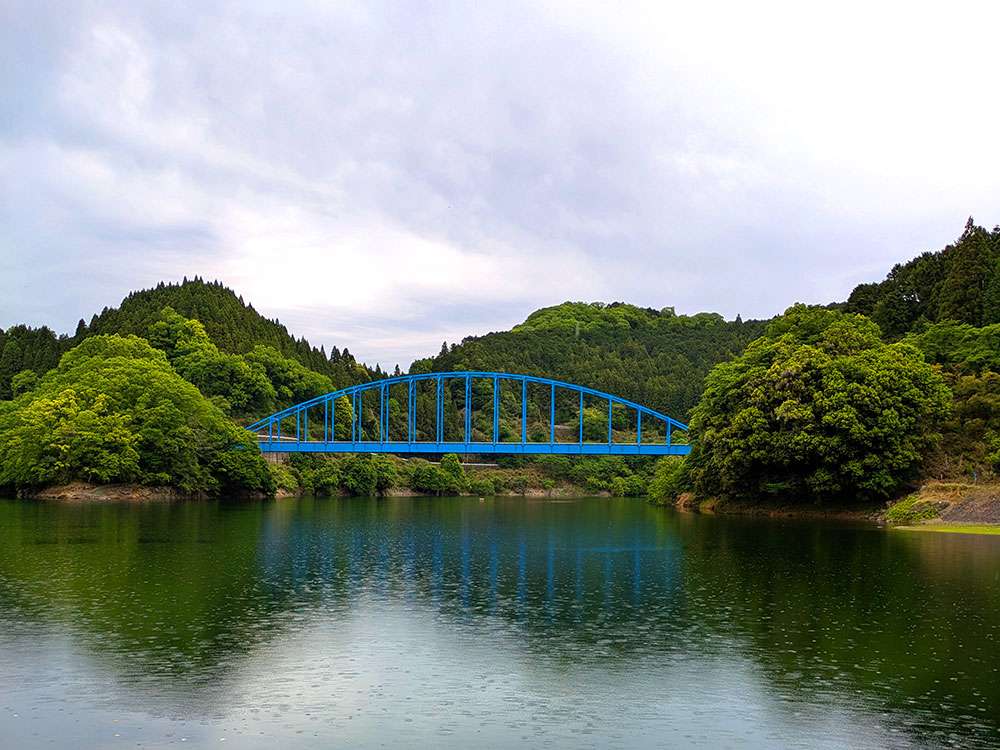
Most people, when they think of Japanese culture, often think of the stereotypical anime/manga, sushi, samurai, etc. However, if you ask a Japanese person what they think of, you’re highly likely to get an answer of onsen. Onsen or hot springs are more than just a place to take a dip, they are an institution unto themselves, a pillar of Japanese culture and tradition. Since ancient times, they have been seen as places of ritual cleansing, community and connections. As such, I believe that no trip to Japan is truly complete without a visit to an onsen.
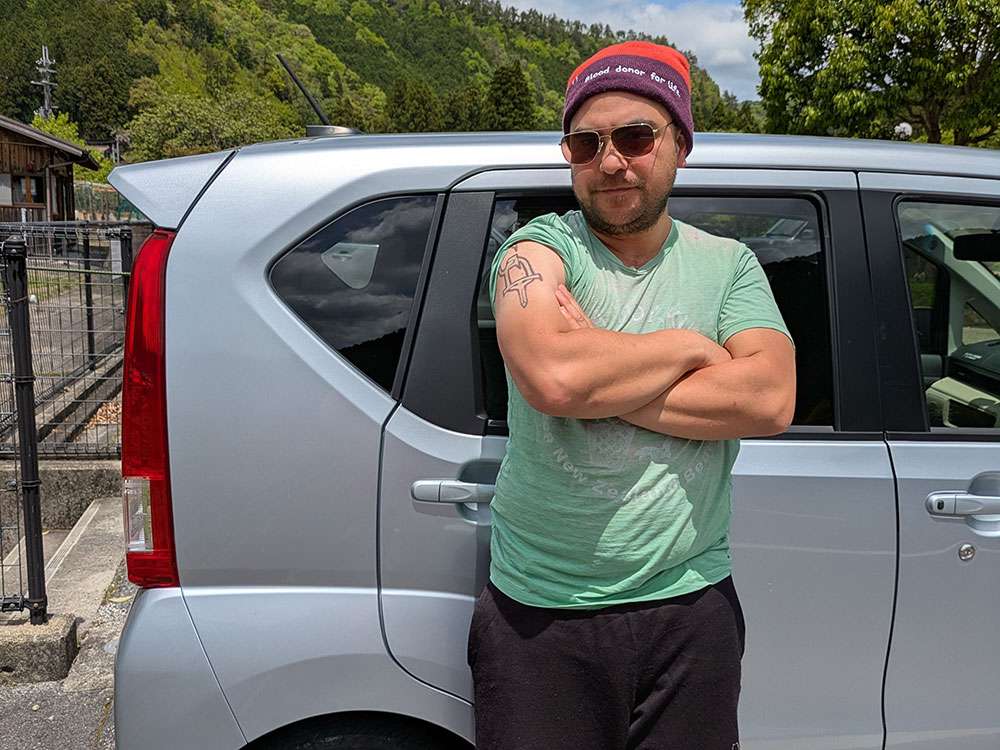
One of the biggest issues standing in the way, though, was the fact that my brother has a rather large tattoo on his shoulder, and many onsen have a blanket ban on tattoos. If the onsen has a ban in place, it does not matter whether you are a foreigner or not, whether the tattoo is cultural or sentimental, whether it is large or small it doesn’t matter. Especially if you’re coming from a country that doesn’t have the same cultural taboos, it’s important to remember that you are a guest in the country. As such, you need to respect and follow these rules during your time in Japan.
Tattoos have historically only been associated with criminals in Japan. But do not despair, my tattooed friends, with a bit of patience and determination, you can find onsen that will welcome you even in the most rural of areas. As luck would have it, I found an onsen in the East Nara Nabari area that does allow guests with tattoos. Even better, due to its location, we drove through the gorgeous Koachidani Valley, allowing me to showcase the amazing nature that we are blessed with in this area.
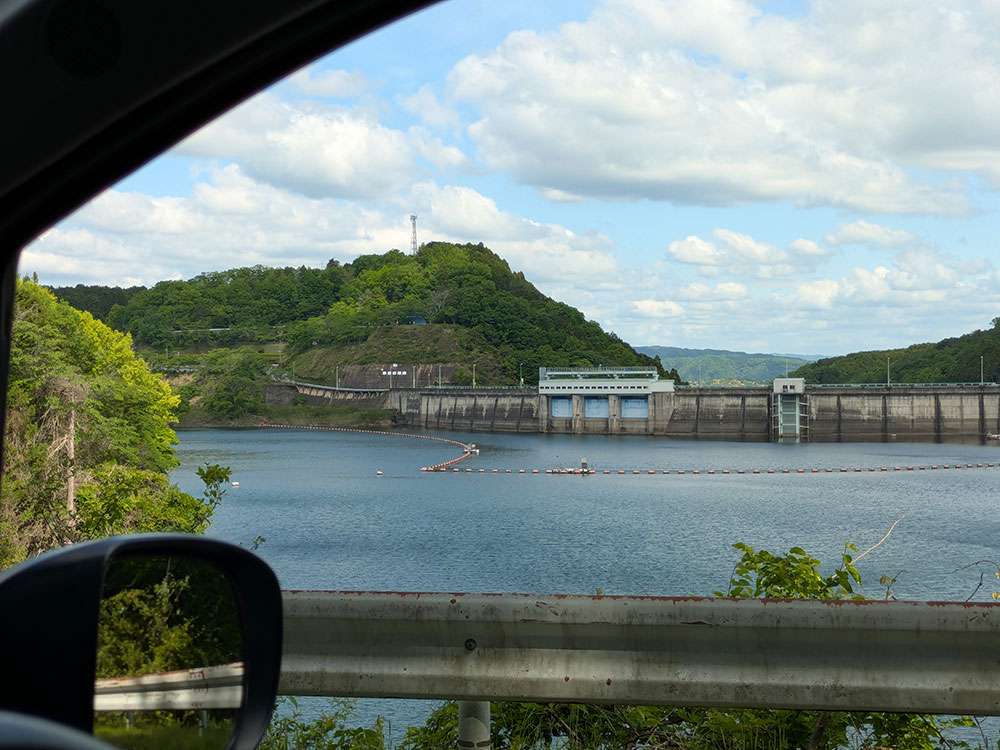
We decided to take the scenic route going from Nabari around Shorenji Lake, through Kaochidani Valley and along the mountain roads. As a bonus, this avoided busy roads. The Shorenji Lake was the first landmark on our journey. Well known for its bass and ayu (sweetfish) fishing. The lake surface was calm and shone like a mirror reflecting the surrounding mountain and nature.
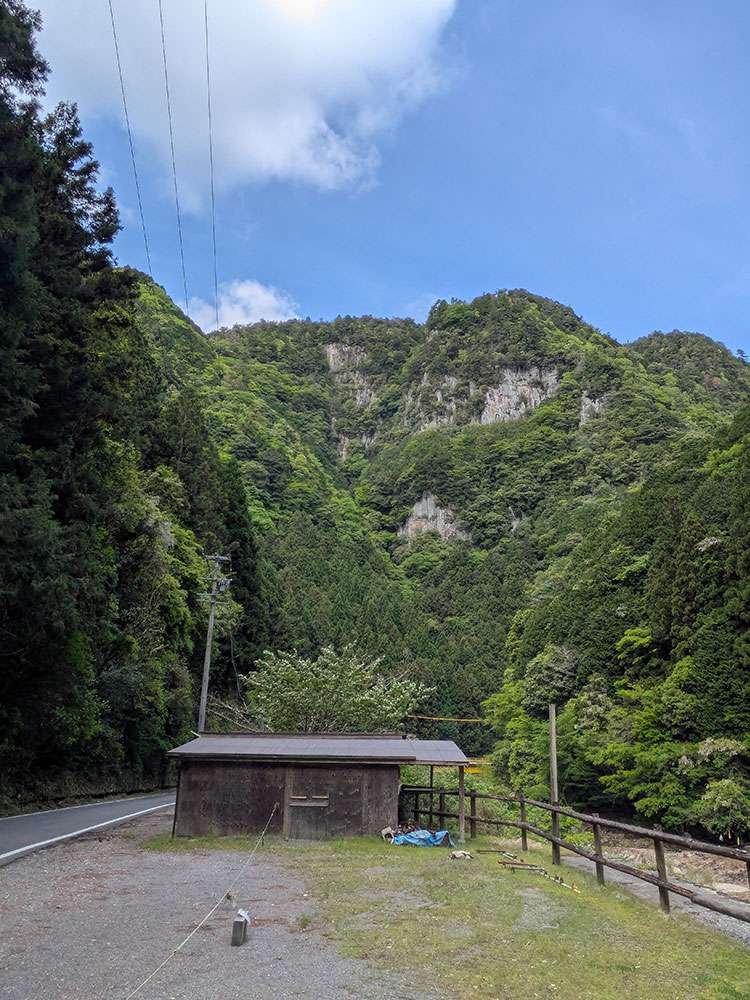
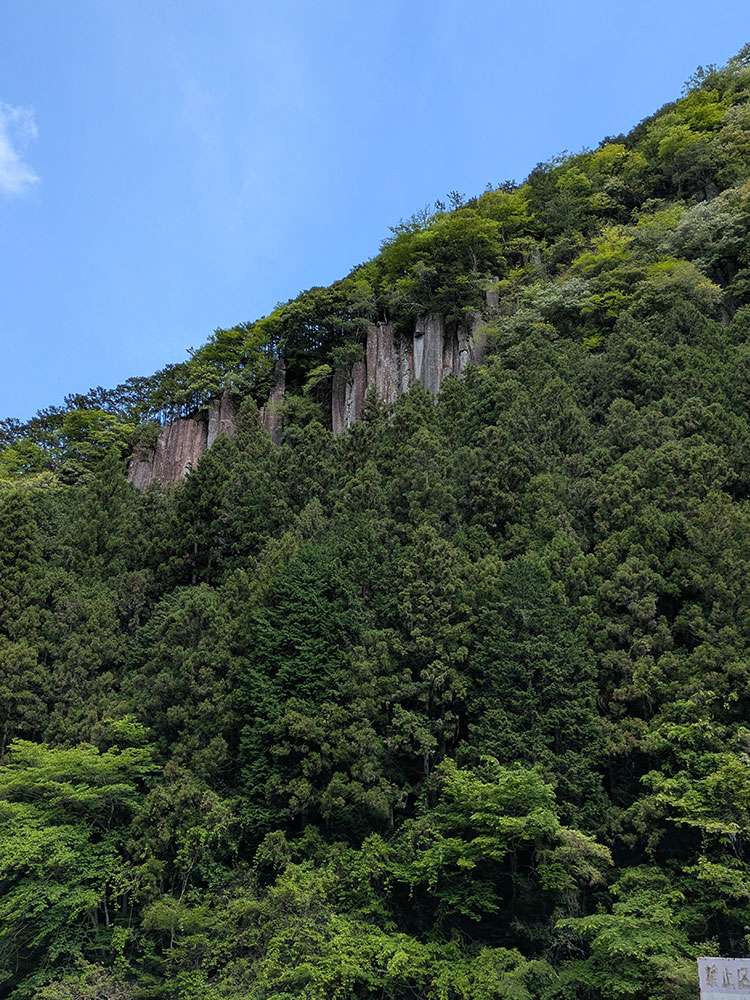
Driving along, the scenery changed when coming into the valley proper from the wide open lake to towering cliff faces. To our right was the mountain, implacable and timeless; to our left, a steep drop down to the river, fast flowing and teeming with life.
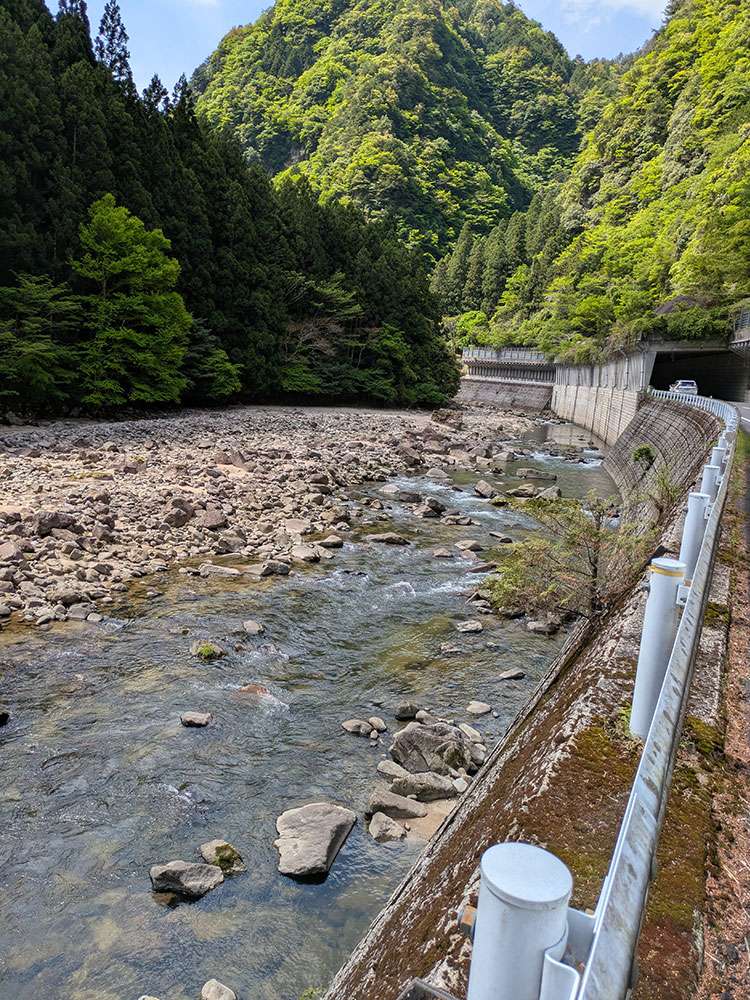
We took the opportunity to stop where we could at the numerous pitstop areas to appreciate and bask in the scenery. After leaving Kaochidani Valley and approaching Soni Village, we decided to stay off the beaten track and continue along the mountainous roads.
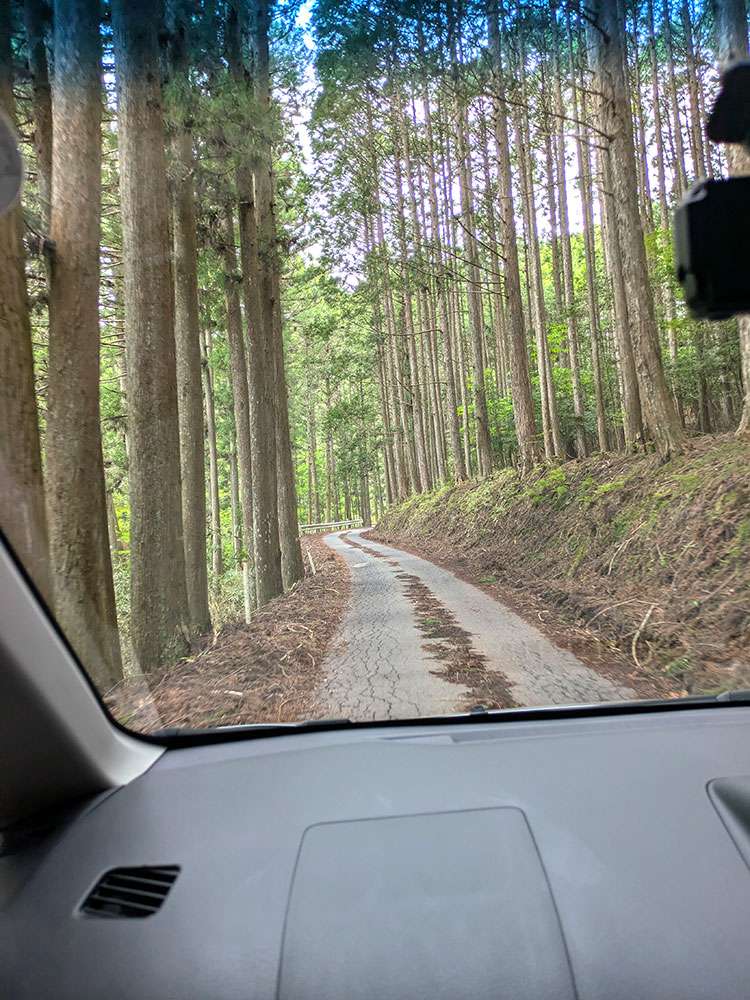
To me, this was probably the most unnerving out of the drive as the mountains were extremely narrow, becoming single gravel lanes. It almost felt like a special rally stage with its hairpin corners, winding up and down the mountains. However, as the driver, my brother loved it, remarking that it reminded him of the back roads he was familiar with back in New Zealand. If you are a driving enthusiast, this is definitely the way to go. You will not be disappointed.
Ready for a Soak at Tattoo-Friendly Takasumi Onsen
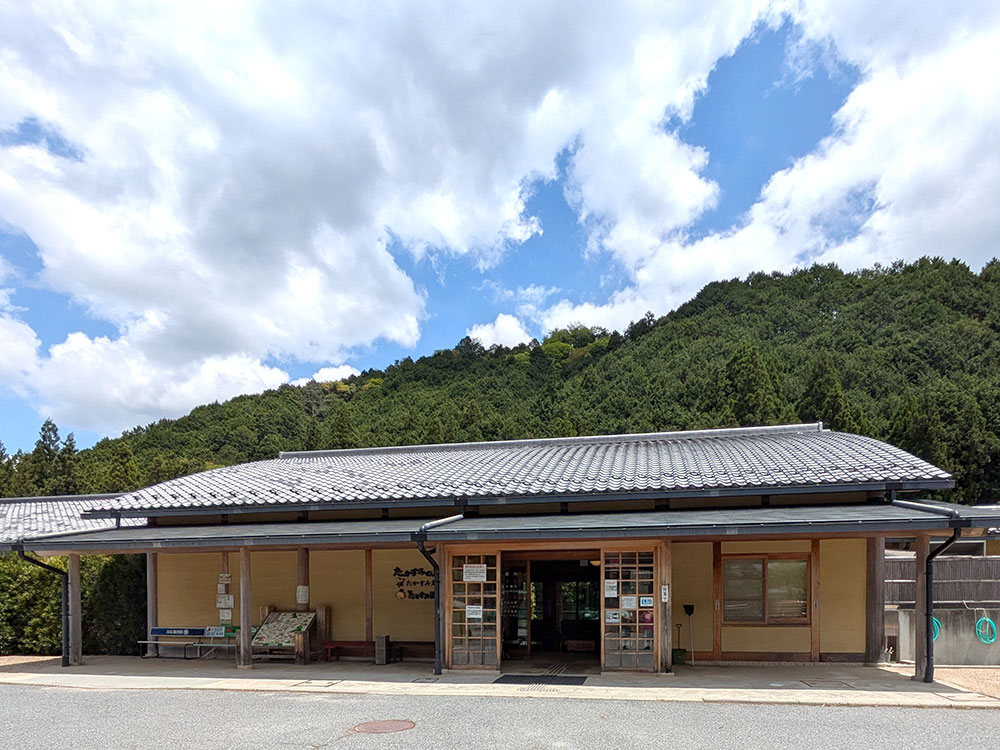
When we arrived at Takasumi onsen in Higashiyoshino, we were greeted by a quaint and charming wooden building. As my brother cannot speak Japanese, I elected to go first. Established in September 2000, Takasumi onsen is a sodium-chloride spring (in this case, sodium-chloride does not refer to table salt but rather the compounds that naturally form in the hot spring), which is particularly good for relieving muscle pain, bruising, and fatigue.
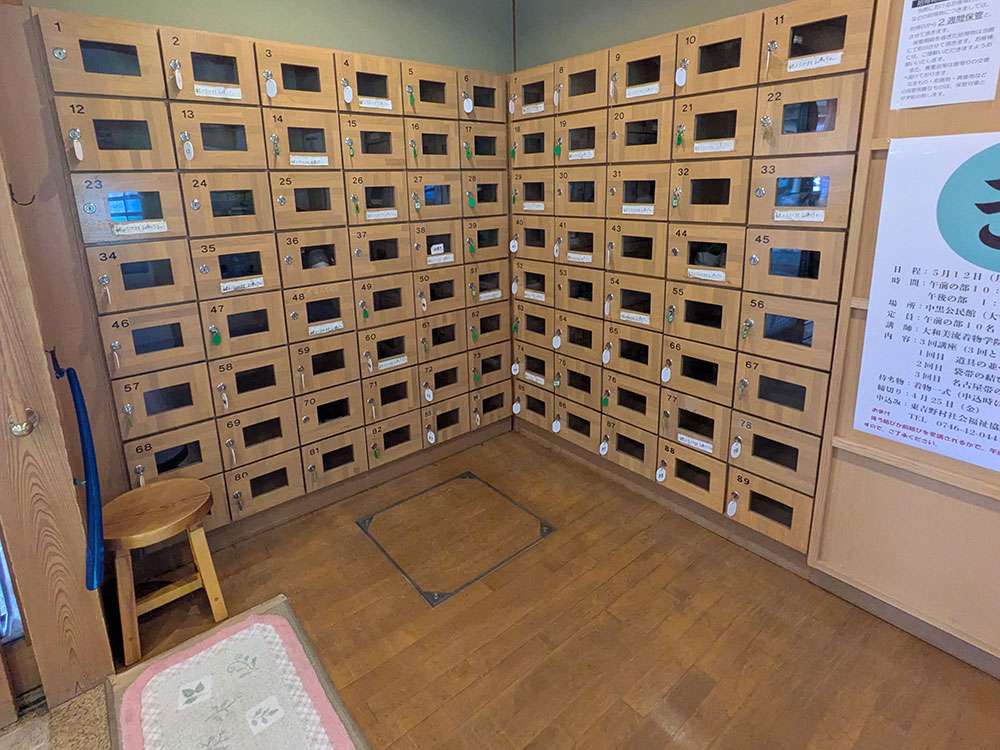
Upon entering the onsen, you take off your shoes, and then interestingly, you do not buy your ticket from the receptionist. Instead, you must go to the ticket machine to purchase your entry tickets and anything else you might need (towels, shampoo, hairbrush, etc). Unfortunately, the buttons on the ticket machine do not have English, however, the friendly staff will surely be able to help if you ask first.
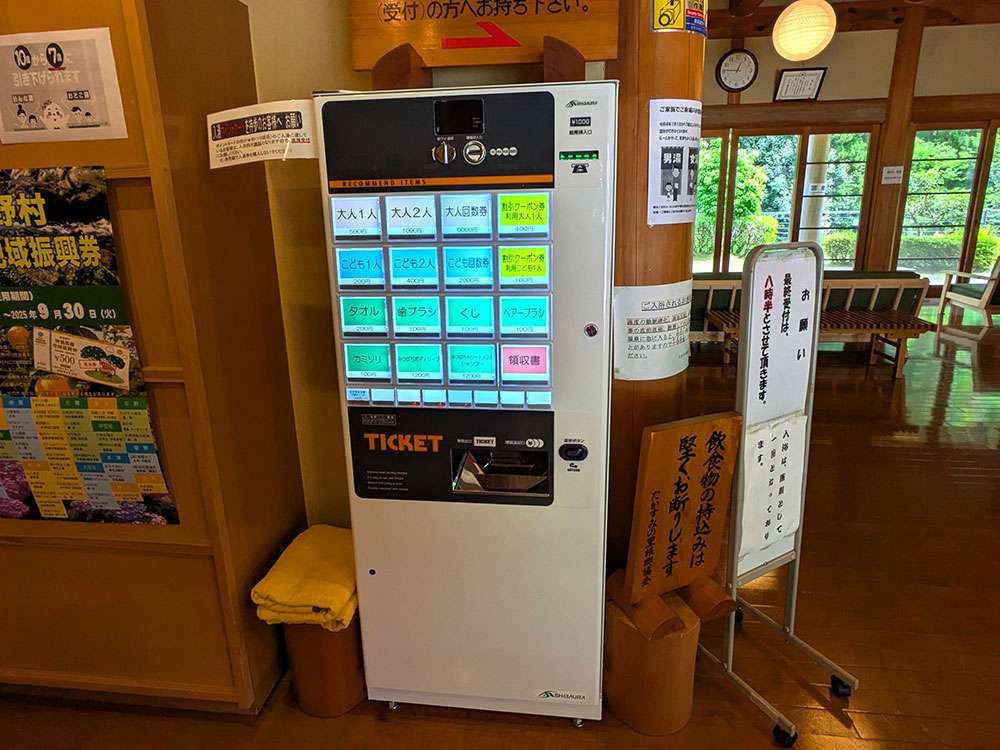
As with all onsen, you first go into the changing room where store your clothing in valuables, then before enter the bath, you have to shower and rinse yourself off. For some, this can often be more awkward than the actual bathing in the onsen because it is an open shower room with low seats under each showerhead with little space between you and the next showerhead. This almost intimate proximity can be unnerving if you're not accustomed to it, but don't worry everyone is here for the same reason so just get through it as best you can. After this, though, it is all worth it as you enter the onsen itself.
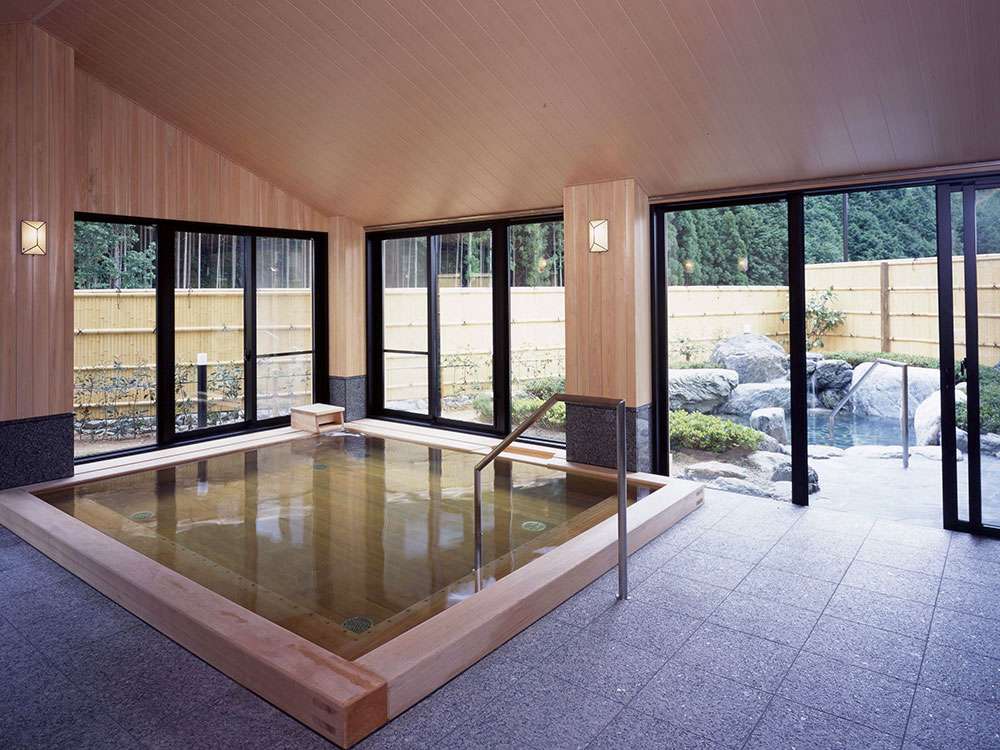
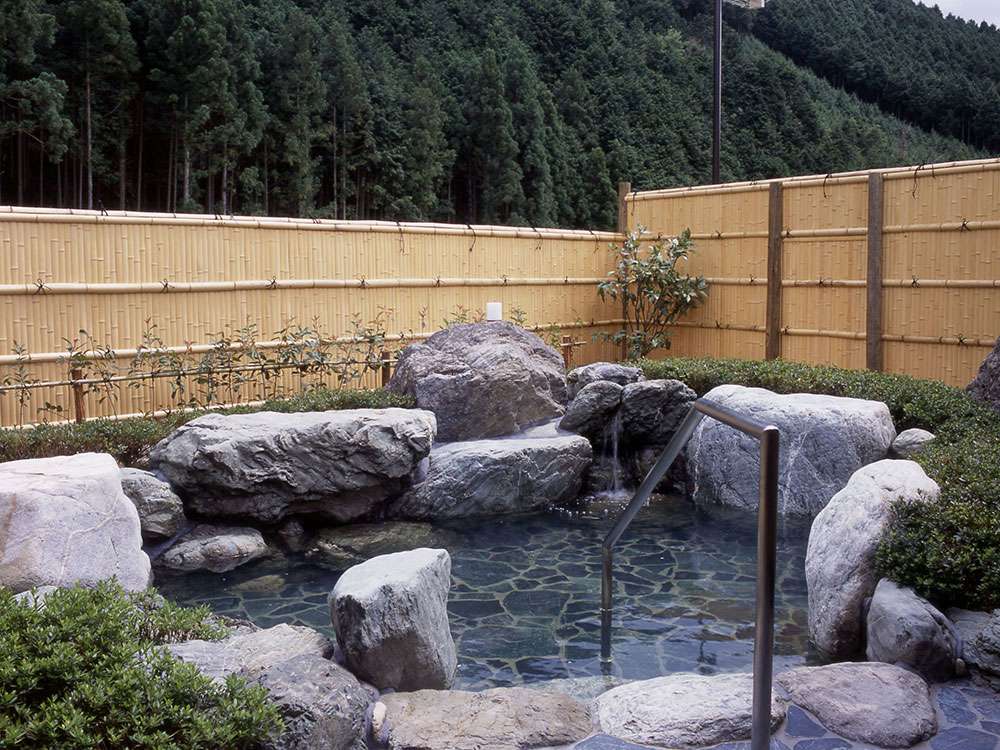
At Takasumi Onsen, there are two different baths provided: an indoor hinoki (cypress) wood-paneled bath and an outside stone-lined bath. After getting over the awkwardness of bathing together since we were children, the onsen itself was absolutely superb. The water was hot and melted away my stress and fatigue. We both found different things to enjoy about the place. I preferred the smooth hinoki wood as it felt very elegant and refined, whereas my brother thought the outdoor stone-lined bath was the best. He said he felt more connected to nature with the stones; it gave the impression of always having been there, and we just stumbled across it.
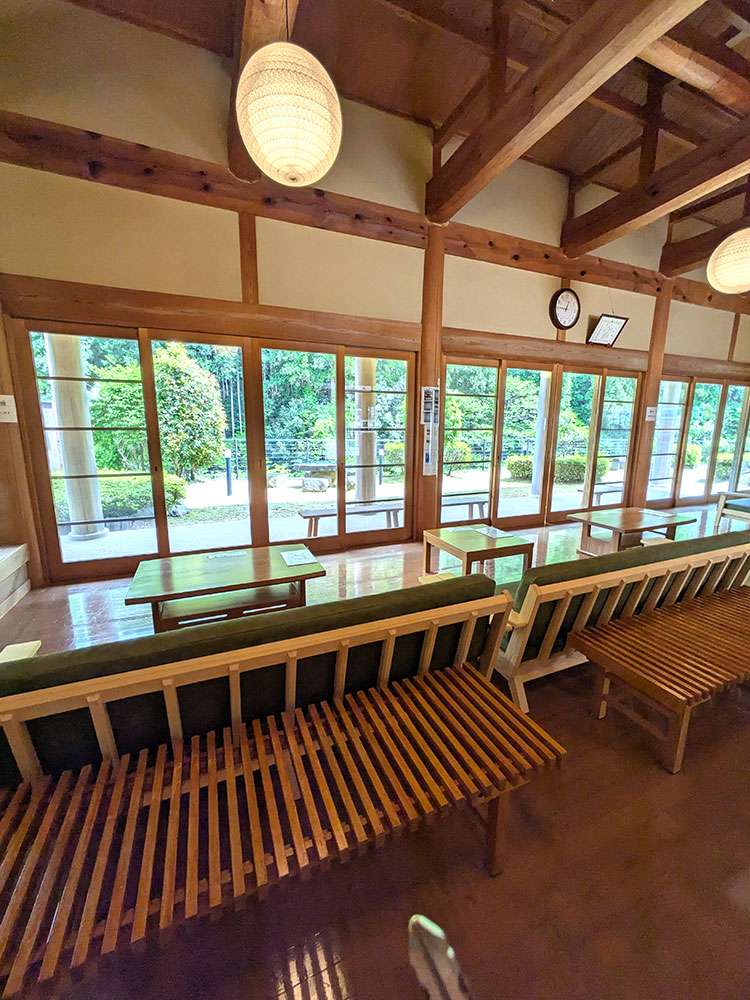
The hinoki wood was more processed as it was cut and turned into benches. After about an hour, I decided to get out, get dressed, and relax in the very nice waiting area.
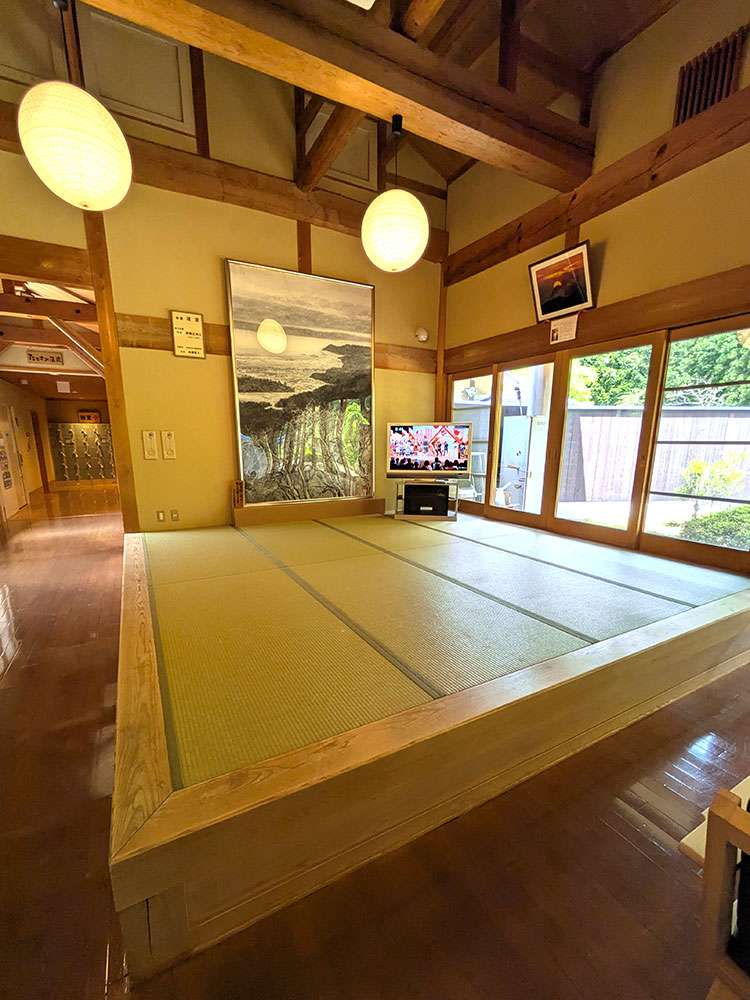
While waiting for my brother, I thought to ask the receptionist why did they not have the same ban on tattoos as many onsens. They explained that this rule of allowing all tattooed guests came not from Takasumi onsen but from Higashiyoshino Village Hall, so all onsen in the area allow guests with tattoos. While we didn't have a chance to go this time, I was told about another onsen in the area, Yahata onsen that also allows for guests with tattoos. I'd love to have the opportunity to go and compare the two onsen but for now, I am glad that we chose to go to Takasumi onsen, it was honestly a delightful find.
Tenkouen: Flavors from Forest and Stream
After soaking in the onsen, we felt a bit peckish, and my brother was keen to try traditional Japanese food. Until this point, he had only had food from the airport and my cooking, unfortunately. This time, my brother was in luck as the receptionist recommended a nearby restaurant called Tenkoen that served traditional Japanese food and was just a short 2 minutes away. We actually drove past it on the way in without realizing it. At the time we thought it was interesting that there were cars parked on a tennis court but didn’t think much more of it until we realized it was the carpark for the restaurant.
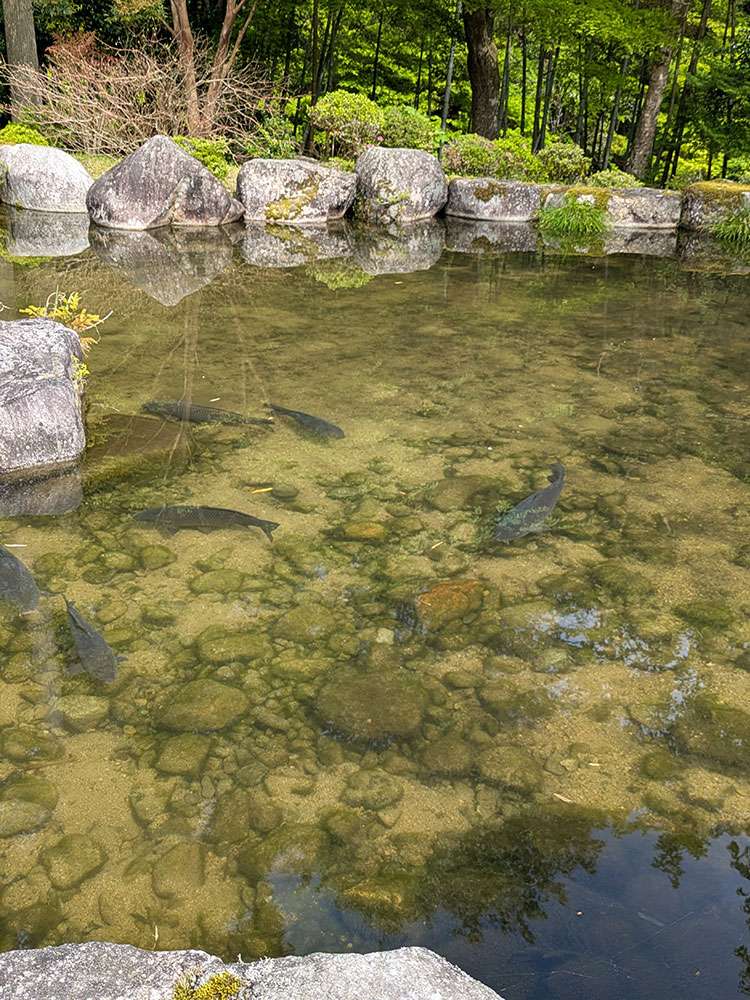
The walk from the carpark from the restaurant is quite relaxing with plenty of trees and koi ponds dotted along. I was struggling to think of how to describe the scenery, as nothing could quite capture the feeling in a succinct way. It felt laid-back with the koi lazily circling in their ponds, yet it was also buzzing with the frantic energy of life from nature around us. It felt like a separate world cut-off from the daily grind, yet it just a few meters away was the road, with cars passing by every so often.
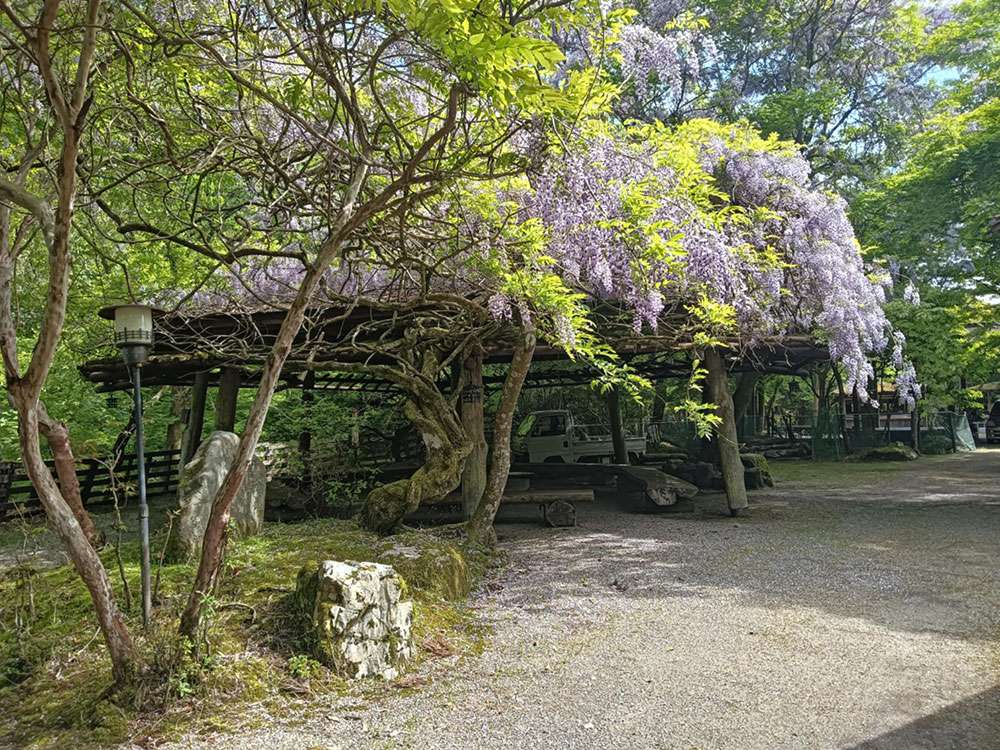
My brother managed to solve this minor problem by simply stating it felt gemütlich, which, when translated from German to English, means ‘comfortably cozy.’ It then hit me that I was so focused on trying to analyze how to describe the feelings, that I didn’t stop and take the time to actually feel them. We were here to enjoy some great scenery and great food and explore a bit of the countryside; no need to overcomplicate it.
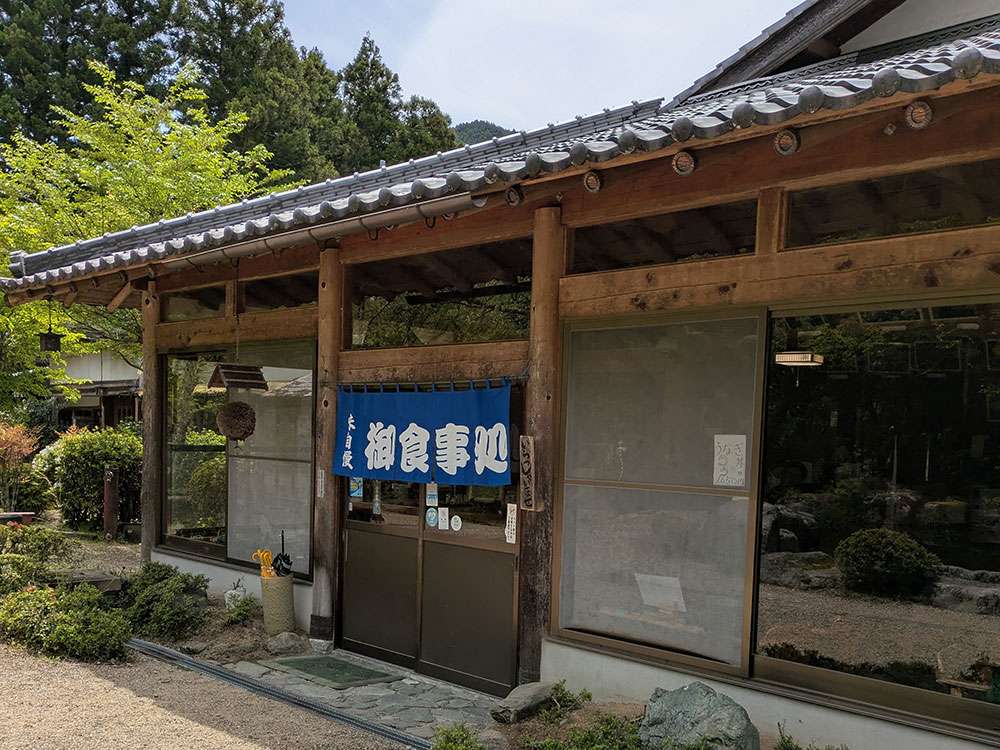
This gemütlich feeling continued on into Tenkoen, it’s tasteful décor a nice backdrop to the tempting smells wafting in from the kitchen.
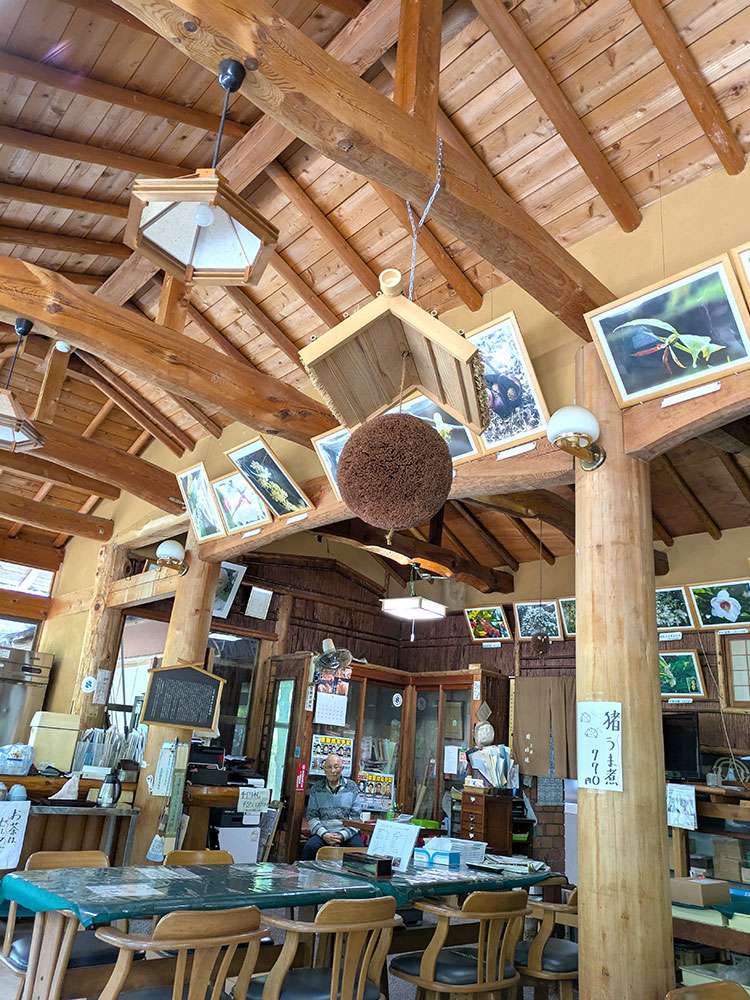
I ordered the lunch set, which came with grilled fish, assorted local vegetables, miso soup, and rice, while my brother got botan-nabe or ‘wild-boar stew.’
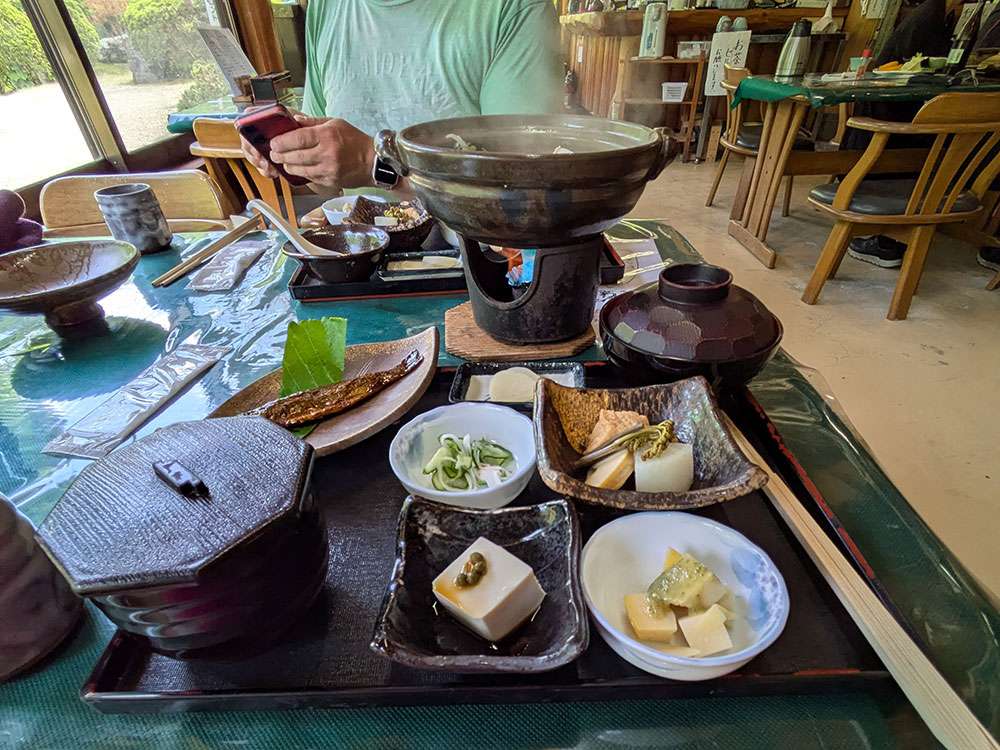
I thought his meal would be only the stew but it also came with assorted vegetables and rice on the side. Honestly this meal was simple yet delicious. Everything was well seasoned and fresh, tasting like that had been harvested or caught that morning.
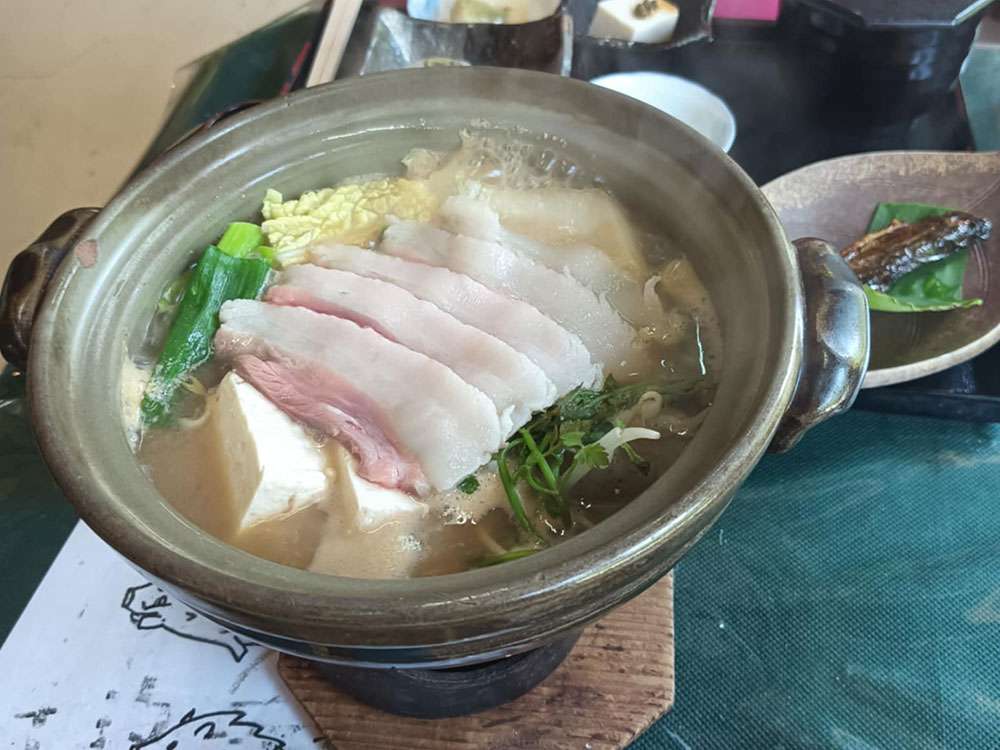
In fact my brother’s favourite part was the shiitake mushrooms that came as part of the vegetable side dish. They absorbed the flavorful broth and added their own characteristic shiitake flavour, resulting in an extremely unctuous bite. As for me, I enjoyed the simple preparation of the grilled fish. It was simply salted before being grilled, so the rich flavor of the fish itself really shone through. When paired with the soft and bouncy Japanese rice it created a pleasant mouth-feel that was enjoyable down to the last bite.
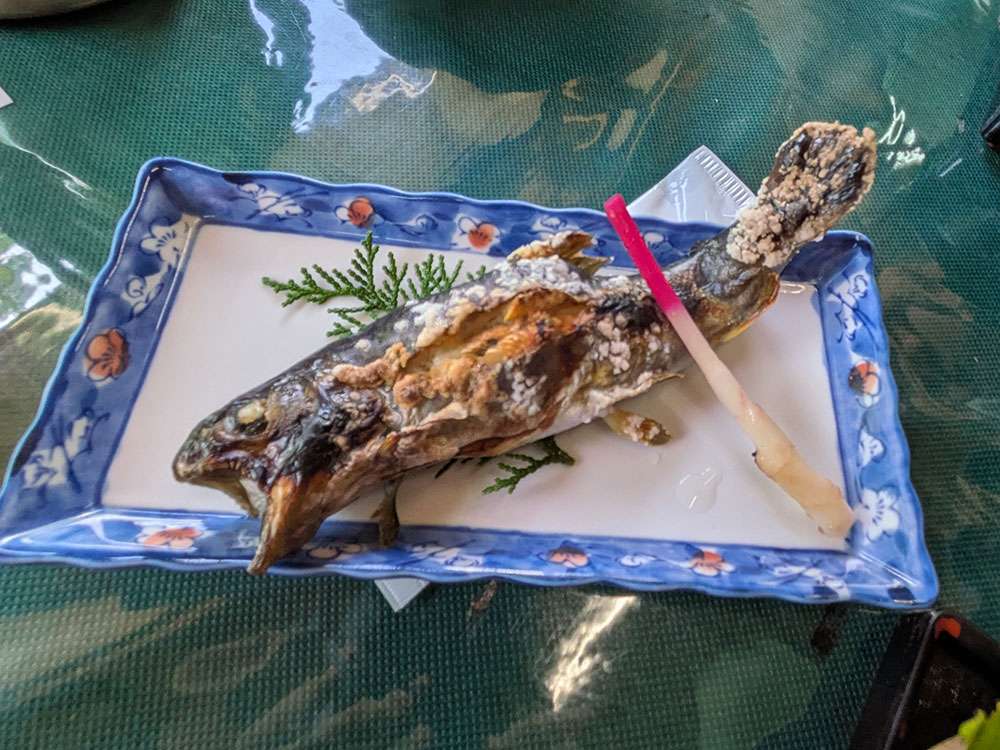
All in all, I think this was an extremely successful and unforgettable experience. I got to show-off my area and its many charms, while my brother managed to experience an integral part of Japanese culture by visiting an onsen despite having a tattoo. While he was warned before coming to Japan that his tattoo might cause some trouble with not being allowed to access certain places like onsen, he was determined to make the best of it. If he had to cover it up while here, well it’d be unfortunate but a price he’d willingly pay to participate in the culture. We both feel that if you go through all the effort of traveling to another country, why would you bother with reverting to the familiar and safe? By all means, try to find the similarities and differences between your home country and the place you are visiting, but the whole point is to experience the new. I’ve found that the strongest time of growth is when you’re outside your comfort zone. Bathing in an onsen is definitely outside of our comfort zones but we both are extremely glad we did.
As we left Takasumi Onsen, I asked the receptionist if they had any message they would like to send out to the world. And they said that Takasumi Onsen and its staff want to engage with people, especially foreigners, from all walks of life. They look forward to seeing you there. That sentiment I fully endorse, if you are in the area, be sure to come and check out this wonderful little onsen.
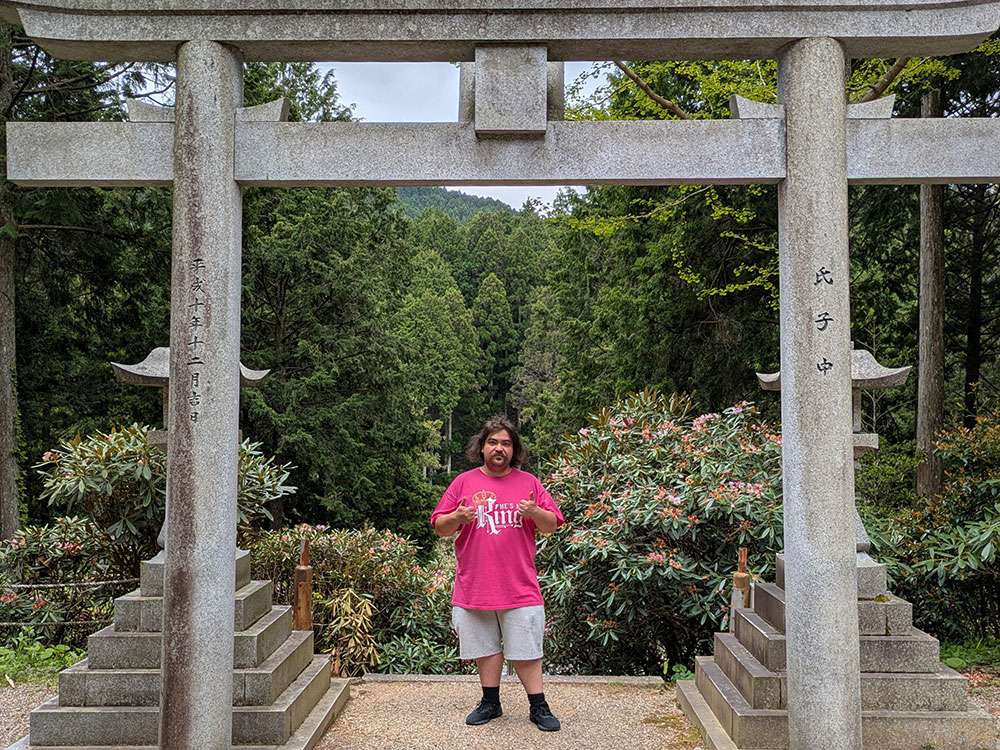
- Takasumi Onsen
- Hours: 11:00 AM – 9:00 PM (until 8:00 PM from December 1 to March 15)
- Closed: Thursdays (or the following day if Thursday is a national holiday) / New Year’s holiday
- Admission Fee: Adults (12 and over): 500 yen / Children (ages 6–11): 200 yen / Free for children under 6
- Note: This information is current as of June 2025.
- Official site (JP): https://furusato-mura.jp/shisetsu/takasumi.php
- Location: https://maps.app.goo.gl/DRzTbVrWmBKf4WU89
- Yahata Onsen
- Hours: 11:00 AM – 9:00 PM (until 8:00 PM from December 1 to March 15)
- Closed: Tuesdays (or the following day if Tuesday is a national holiday) / New Year’s holiday
- Admission Fee: Adults (12 and over): 500 yen / Children (ages 6–11): 200 yen / Free for children under 6
- Note: This information is current as of June 2025.
- Official site (JP): https://furusato-mura.jp/shisetsu/yahata.php
- Location: https://maps.app.goo.gl/53NkisFmSWpUFUuL8
